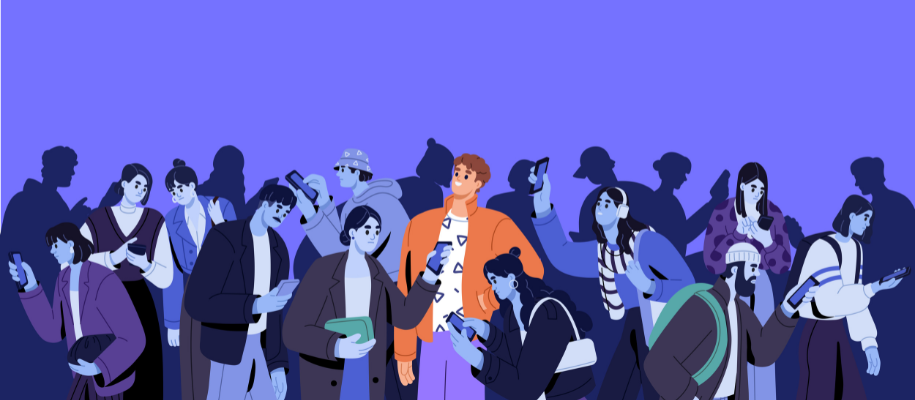I like my phone as much as the next person, and you can call me a hypocrite, but I’m confused and worried about everyone’s evolving attachment to technology. I still frequently use Snapchat, Facebook, text messages, Tumblr, Instagram, YouTube, and other apps, so much that it feels like a gigantic part of my life happens on a screen. Am I happy about this? Not really. Even though technology can keep us informed, interested, and entertained, it’s still experiencing the world through a filter—not firsthand.
Let’s break the constant ties to our phones, tablets, laptops, and other gadgets. Let’s unplug. Especially as high school and college students because we really only get to do this once. Here are five ways to unplug and loosen your connection to your smartphone and other technology this semester through a little mindfulness and new habits.
1. Be conscious of how often you use your phone
The first major step to unplugging is to be conscious of when you use your phone or other technology, so you’ll process just how much you are using it. Whenever you pull out your phone to text someone, for example, think to yourself, “Now I am using my phone.” You could even spend a week keeping track of your usage and writing it down (or just checking the usage stats in your phone settings). After becoming more aware of your tech usage, it will become less of a mindless habit and more of a conscious decision.
Related: 7 Easy Ways to Make Your Semester More Mindful
2. Make a real effort to limit your usage
Once you’re aware of your overuse, say to yourself, “I will try my best to lessen my time plugged into a device.” Try to start by only using your device when it’s necessary, such as answering an important call, email, or text. Set certain times when you can check your phone based on what works best for you: once every hour, every two hours, three times a day, etc. Another way to limit usage is to delete non-essential apps that frequently suck up your time. This way, to use that app, you have to re-download it. Only download it again if you think it’s either necessary or don’t think it will waste too much time. After you’re done using it for a limited amount of time, delete it again. If you want to use it again, repeat the process. As the app becomes more tedious to use, you’ll be tempted by it less. I know this sounds a little strange, but trust me, I do this as a super effective way to give myself a little “tech-cleanse.”
3. Find a new pastime
Instead of going straight to your phone, laptop, or tablet to be entertained when you have downtime, turn to something else! Pick up a book with a story that captures your interest. And if you’re not normally much of a reader, try an audiobook that lets you just recline and relax while you listen. Try picking up solo puzzle games that challenge your brain like Sudoku or crosswords. Plan a board game with friends. Express your creativity by painting, drawing, or writing in a journal. Or just go outside! There are so many other things you could be doing than doom-scrolling on your phone.
Related: How to Make Time for Yourself and Your Hobbies With a Busy School Schedule
4. Explore life through a new lens
Speaking of going outside: Take a walk through your town or campus without your phone, or if you don’t feel comfortable doing so, turn it on airplane mode and keep it in your pocket. Try to not use your phone unless it’s an emergency. This is your chance to take in the world in front of you and to really see it and appreciate the little things. Notice the movement of the trees. Smell the fresh air. Observe the color of the sky. Listen to the sounds of birds. Let the world in front of you entertain you; it has so much to offer that our phones never can, and we often rush through it in our daily lives.
5. Encourage others to join you in unplugging
Encourage your friends and family members to spend less time on their phones too when you’re hanging out with them—this will strengthen your resolve in being more present in your life. At dinner, for example, suggest that everyone put their phones off the table and in their bags or pockets. If they ask you why, tell them that you want to enjoy their company as completely and presently as possible.
Related: How to Create Smart, Long-Lasting Habits in High School
How long you can go without checking your phone: A day? A few hours? Only 30 minutes? Be honest with yourself. If it’s not that long, then you might want to make some changes. Phone and computer distractions can cause disruptions in our mental health, our productivity, and our relationships. So practice a little mindfulness and unplug this semester to really give your all to your academic goals and personal life.
A big element of sticking to new habits, like unplugging from technology, is to stick to a good schedule. Here are 10 Things You Can Do as Part of a Healthy Routine to get you started!





